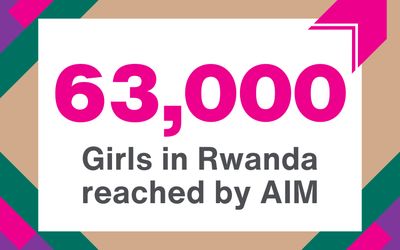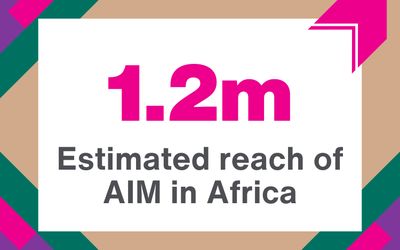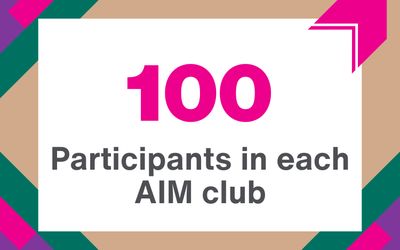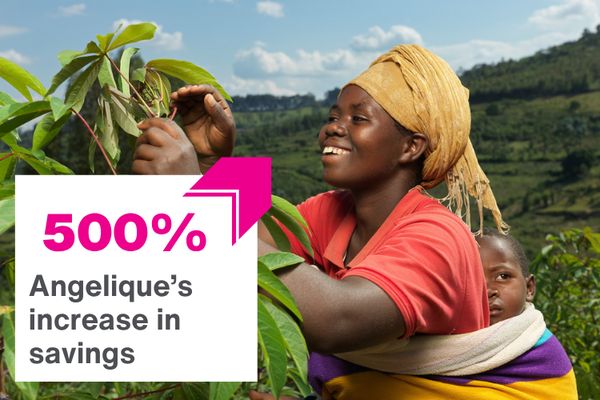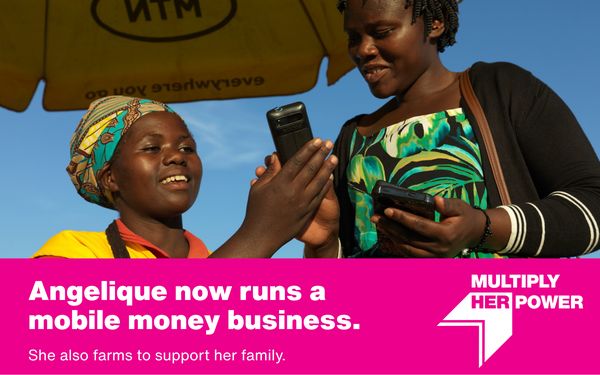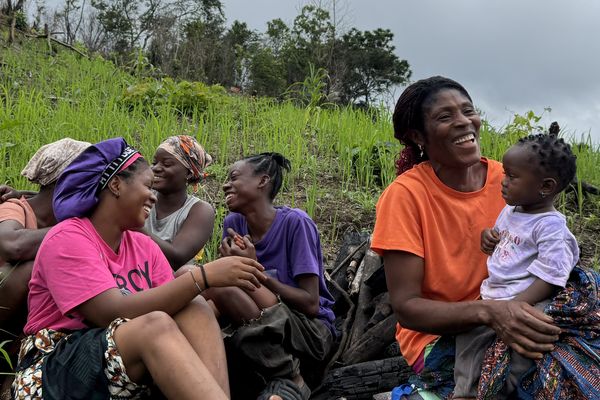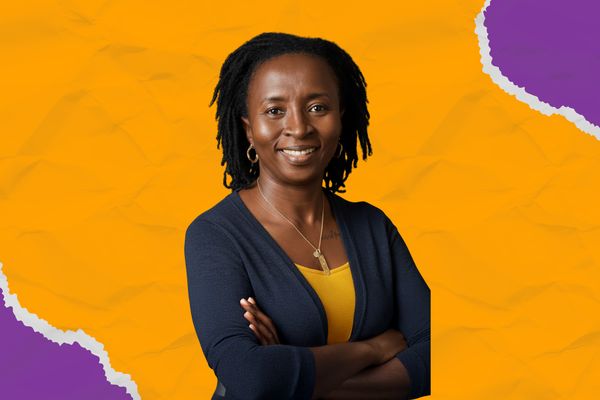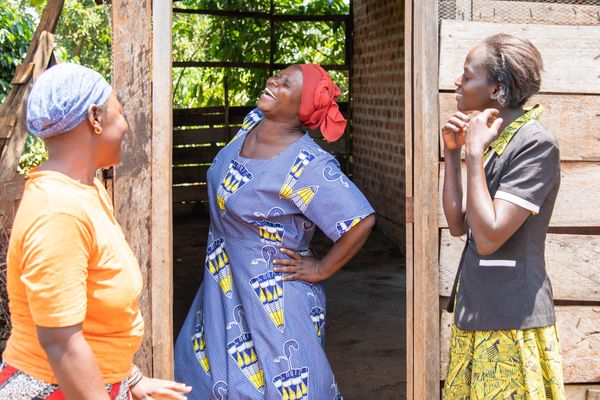The challenge: barriers for young women
In Rwanda and across the Global South, many young women face overlapping barriers that prevent them from fulfilling their potential. An estimated 53 million young people in sub-Saharan Africa are not in employment, education, or a training program. Women are disproportionately affected.
For many young adults, the end of adolescence marks the beginning of supporting themselves. But without access to resources, training, financial literacy, or social support, young women often remain trapped in unemployment or low-paying jobs.
Angelique, a 25-year-old mother living in Kinazi, Rwanda, knows this struggle.
Growing up in Rwanda’s Eastern Province, Angelique dreamed of completing her education. But her family couldn’t afford the school fees, so she had to drop out of secondary school. Without health insurance, she also struggled to access care when she was ill.
Later, Angelique married her husband, Francois, and gave birth to a baby girl named Scovia. They moved from their home to the Southern Province of Rwanda, hoping for a fresh start and new opportunities.
Instead, Angelique found herself working long hours as a farm laborer, digging in other people’s fields for low wages. “It was hard work, and we were barely getting by,” she remembers.
With no steady income or family and friends nearby to lean on for support, she felt isolated and uncertain about her future. “I used to depend on my husband for everything, even to buy salt,” she says. “I didn’t know about savings.”
The solution: BRAC’s youth empowerment approach
To help young women like Angelique build confidence, gain knowledge, and access resources, BRAC launched the Mastercard Foundation Accelerating Impact for Young Women (AIM) program in 2023. It builds upon BRAC’s evidence-based youth empowerment model, which spans microfinance, agriculture, vocational training, and skills development.
Implemented across Sierra Leone, Liberia, Uganda, Tanzania, and Rwanda, AIM equips adolescent girls and young women ages 12–35 with age-appropriate entrepreneurship training, employability skills, and life skills education. Participants also access tools to start and scale their own businesses. They build peer support networks that last long after their one-year program participation ends.
In Rwanda alone, AIM has already reached over 63,000 young women. Across Africa, AIM is anticipated to equip 1.2 million young women to advance gender equality and step into leadership roles.
Each club includes an average of 100 participants in four, 25-member groups, based on age. Two mentors from the community support each club. The clubs host regular sessions. Some sessions also include family members and partners.
Angelique joined her local AIM club and began attending sessions. She got to choose the pathway to decent work that she wanted to focus on. Between agribusiness, entrepreneurship, apprenticeships, and vocational training, Angelique chose entrepreneurship.
“Through the training and mentoring I received, I began to see myself differently,” she says. “I gained confidence. For the first time, I started to feel like a self-reliant woman.”
Most importantly, Angelique found a community of peers and mentors that she belonged to. She met young women in her club who were facing similar challenges or had already been through them. They encouraged and inspired her.
The impact: from farm laborer to entrepreneur
Through BRAC’s AIM program, Angelique received start-up capital and mentorship—and took a bold step. She rented land to grow cassava and vegetables to start her own agricultural business. In order to diversify her income, she also started a small mobile money business.
At first, Angelique was nervous. “How could someone like me, just a village woman, handle a business that involves managing money and avoiding scammers?” she wondered. But with encouragement, she left that fear behind.
She also joined her local village savings and loan association and started putting aside part of her income each week. Angelique began saving for her family’s future, including her daughter’s education and health insurance. “Learning to save money makes me proud,” she shares. Now, if Angelique needs salt, she can buy it herself.
Today, Angelique manages both businesses successfully. She invests her mobile money business profits back into her farm. “Running both the business and my farm has made me stronger and more independent,” she says.
Angelique now saves five times the amount each week compared to when she began saving. “I’ve learned that with the right support and a strong will, I can build the life I want for me and for my daughter,” Angelique shares. Her next goal? To own her own home.
The big picture: multiplying the power of young women
Through youth empowerment programs, BRAC is helping young women like Angelique create pathways to long-term and inclusive economic growth. Globally, BRAC’s youth programs have reached more than 1 million young people, providing the training, mentorship, and tools they need to build brighter futures.
Angelique’s story demonstrates how investing in young women pays dividends for generations to come. When women gain financial literacy, confidence, and access to capital, they multiply their own power—and make progress that ripples across families and communities.
But this kind of transformation doesn’t happen by chance—it happens because of people like you. Will you invest in young women like Angelique? Provide the tools, skills, and resources that help young women unlock their entrepreneurial power. In turn, they will access dignified work, grow businesses, and make poverty disappear.

